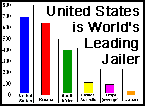|
|
 |
 |
 |
 |
register |
bbs |
search |
rss |
faq |
about
|
 |
 |
meet up |
add to del.icio.us |
digg it
|
 |

|
Fair Debt Collection
Facts for Consumers from the Federal Trade Commission
Fair Debt Collection -- September 1992
If you use credit cards, owe money on a personal loan, or are
paying on a home mortgage, you are a "debtor." If you fall behind
in repaying your creditors, or an error is made on your accounts,
you may be contacted by a "debt collector."
You should know that in either situation the Fair Debt Collection
Practices Act requires that debt collectors treat you fairly by
prohibiting certain methods of debt collection. Of course, the
law does not forgive any legitimate debt you owe.
This brochure provides answers to commonly asked questions to
help you understand your rights under the Fair Debt Collection
Practices Act.
What debts are covered?
Personal, family, and household debts are covered under the Act.
This includes money owed for the purchase of an automobile, for
medical care, or for charge accounts.
Who is a debt collector?
A debt collector is any person, other than the creditor, who
regularly collects debts owed to others. Under a 1986 amendment
to the Fair Debt Collection Practices Act, this includes
attorneys who collect debts on a regular basis.
How may a debt collector contact you?
A collector may contact you in person, by mail, telephone,
telegram, or FAX. However, a debt collector may not contact you
at unreasonable times or places, such as before 8 a.m. or after
9 p.m., unless you agree. A debt collector also may not contact
you at work if the collector knows that your employer
disapproves.
Can you stop a debt collector from contacting you?
You may stop a collector from contacting you by writing a letter
to the collection agency telling them to stop. Once the agency
receives your letter, they may not contact you again except to
say there will be no further contact. Another exception is that
the agency may notify you if the debt collector or the creditor
intends to take some specific action.
May a debt collector contact any person other than you concerning
your debt?
If you have an attorney, the debt collector may not contact
anyone other than your attorney. If you do not have an attorney,
a collector may contact other people, but only to find out where
you live and work. Collectors usually are prohibited from
contacting such permissible third parties more than once. In most
cases, the collector is not permitted to tell anyone other than
you and your attorney that you owe money.
What is the debt collector required to tell you about the debt?
Within five days after you are first contacted, the collector
must send you a written notice telling you the amount of money
you owe; the name of the creditor to whom you owe the money; and
what action to take if you believe you do not owe the money.
May a debt collector continue to contact you if you believe you
do not owe money?
A collector may not contact you if, within 30 days after you are
first contacted, you send the collection agency a letter stating
you do not owe money. However, a collector can renew collection
activities if you are sent proof of the debt, such as a copy of a
bill for the amount owed.
What types of debt collection practices are prohibited?
Harassment. Debt collectors may not harass, oppress, or abuse
any person. For example, debt collectors may not:
l use threats of violence or harm against the person,
property, or reputation;
l publish a list of consumers who refuse to pay their debts
(except to a credit bureau);
l use obscene or profane language;
l repeatedly use the telephone to annoy someone;
l telephone people without identifying themselves;
l advertise your debt.
False statements. Debt collectors may not use any false
statements when collecting a debt. For example, debt collectors
may not:
l falsely imply that they are attorneys or government
representatives;
l falsely imply that you have committed a crime;
l falsely represent that they operate or work for a credit
bureau;
l misrepresent the amount of your debt;
l misrepresent the involvement of an attorney in collecting a
debt;
l indicate that papers being sent to you are legal forms when
they are not;
l indicate that papers being sent to you are not legal forms
when they are.
Debt collectors also may not state that:
l you will be arrested if you do not pay your debt;
l they will seize, garnish, attach, or sell your property or
wages, unless the collection agency or creditor intends to do so,
and it is legal to do so;
l actions, such as a lawsuit, will be taken against you, which
legally may not be taken, or which they do not intend to take.
Debt collectors may not:
l give false credit information about you to anyone;
l send you anything that looks like an official document from
a court or government agency when it is not;
l use a false name.
Unfair practices. Debt collectors may not engage in unfair
practices in attempting to collect a debt. For example,
collectors may not:
l collect any amount greater than your debt, unless allowed by
law;
l deposit a post-dated check prematurely;
l make you accept collect calls or pay for telegrams;
l take or threaten to take your property unless this can be
done legally;
l contact you by postcard.
What control do you have over payment of debts?
If you owe more than one debt, any payment you make must be
applied to the debt you indicate. A debt collector may not apply
a payment to any debt you believe you do not owe.
What can you do if you believe a debt collector violated the law?
You have the right to sue a collector in a state or federal court
within one year from the date you believe the law was violated.
If you win, you may recover money for the damages you suffered.
Court costs and attorney's fees also can be recovered. A group of
people also may sue a debt collector and recover money for
damages up to $500,000, or one percent of the collector's net
worth, whichever is less.
Where can you report a debt collector for an alleged violation of
the law?
Report any problems you have with a debt collector to your state
Attorney General's office and the Federal Trade Commission. Many
states also have their own debt collection laws and your Attorney
General's office can help you determine your rights.
If you have questions about the Fair Debt Collection Practices
Act, or your rights under the Act, write: Correspondence Branch,
Federal Trade Commission, Washington, D.C. 20580. Although the
FTC generally cannot intervene in individual disputes, the
information you provide may indicate a pattern of possible law
violations requiring action by the Commission.
To obtain a free copy of Best Sellers a listing of all the FTC's
consumer and business publications write to: Public Reference,
Federal Trade Commission, Washington, D.C. 20580.
6/79; 4/80; 7/82; 12/86; 2/88; 9/91
|

|
 |
To the best of our knowledge, the text on this page may be freely reproduced and distributed.
If you have any questions about this, please check out our Copyright Policy.

totse.com certificate signatures
|
 |
 |
About | Advertise | Bad Ideas | Community | Contact Us | Copyright Policy | Drugs | Ego | Erotica
FAQ | Fringe | Link to totse.com | Search | Society | Submissions | Technology
|
 |
 |
 |
 |
|

